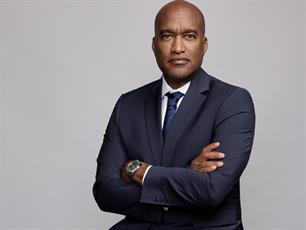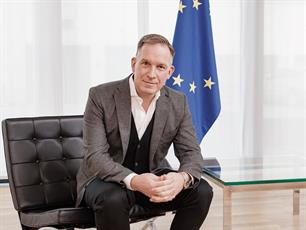Finn Partners 15 Jul 2015 // 3:17PM GMT

When you're planning your day between deadlines, deliverables and meetings (oh my!), the struggle feels as real as ever. At Finn Partners, I feel a little spoiled. We have an awesome team of dedicated project managers (PMs) who keep clients happy, budgets in check, and the production team...well...productive.
There's so much industry chatter about the importance of a mentor in the workplace -- which I wholeheartedly agree with -- but I'd almost go as far as to argue that working with a real-life PM is as important as having a mentor. How are you supposed to focus on professional development when you're drowning deep into the depths of account service and management?
My secret? Neby Ejigu. If you're wondering what's so special about Neby, you probably haven't crossed paths with him yet. He's the Director of Production at Finn Partners. Not sure what that means? In a nutshell, it means that he is the neck that turns the head. Neby oversees a team of digital PMs to ensure that all projects -- including internal collaborations with account teams -- run smoothly.
I'm always fascinated by what Neby does, and how attached I've grown to his team. (Really. I won't even submit an RFP response without bouncing my ideas off at least one of our PMs.) To demystify project management, and to reveal just one of the reasons I'm able to do my job smoothly, I asked Neby some questions about his role, his team, and the importance of project management. Like only a true PM would, Neby was able to whittle away at my questions in between several important meetings, and an Amtrak journey.
Question: The term project manager gets used so loosely. What is a project manager, really?
Answer: We're chameleons - we morph into whatever we really need to. A project manager can be expected to develop projects and plans, while also managing and monitoring overall project execution. When there's a change in scope, that's when a project manager takes control, and helps to redefine, and realign the project. I sometimes like to think of PMs as project guards; we have authority over project scope, time, cost, resources and team members.
Question: What are the three key benefits of having a dedicated project manager?
Answer: The benefits are pretty simple and straightforward. Embed a project manager if you want to:
- Manage client expectations perfectly
- Produce a well thoughtful, high-quality campaign
- Deliver a project on time, within budget, all while utilizing the right resources
Question: What traits make a good project manager?
Answer: Social skills and patience are key, because the core of project management isn't just about management deliverables, it's about managing people -- balancing client needs with the needs of the internal team. A good project manager needs to be willing to dig in, and get their hands dirty -- diving into project foundation pieces like storyboarding, strategy, wire-framing, content entry, design, coding, etc. Finally, creativity is essential, and should have no limits. A solid PM should be able to creatively solve problems, because there's no such thing - and never will be - as a perfect project. In this industry, flawless executions are most often a result of having the right mix of talent with a great PM putting out fires and solving any issues.
Question: What's your advice for teams that don't have enough budget for a project manager?
Answer: Honestly, consider the opportunity cost. Not having a PM will cost more in the long run. When faced with smaller budgets, some teams assume that an account manager can play the PM role as well. This couldn't be more wrong, because both roles are so very different. Don't be afraid to consult our team - I swear we don't bite! Remember when I said we're problem solvers? We will find alternative ways to accommodate budgets and to identify the right resources to fit that respective budget. Don't forget that PMs serve two needs. They're a support system internally, but they are also client-facing, and in most cases we eliminate overlap with the account manager.
Question: Is a project manager beneficial for clients, too, or are they only beneficial for internal workflow?
Answer: Having a sound PM in place is super beneficial to clients. They help to simplify technical jargon, while educating them on elements of a digital strategy. Having a PM available to offer those insights, while providing an accurate update on the project at any given time, without having to bother the team also helps manage the bottom line.
Question: When's the best time to loop in a project manager?
Answer: From the beginning. If we're there from square one - or really, square zero - it sidesteps any potential issues. The PM should be looped in at pitch time whenever possible to allow them to establish a scope of work, assign the right resources, and strategically think about solutions relevant to client needs. The sooner a PM is involved, the smoother and smarter your projects become.
Question: Is having a dedicated project manager expensive?
Answer: Project management costs are accounted for in all budgets that we give out to teams. It is typically the lowest cost from the breakdown and is not expensive.
Alexandra Kirsch is Associate Vice President of Digital/Social/Creative at Finn Partners


































.jpg)














